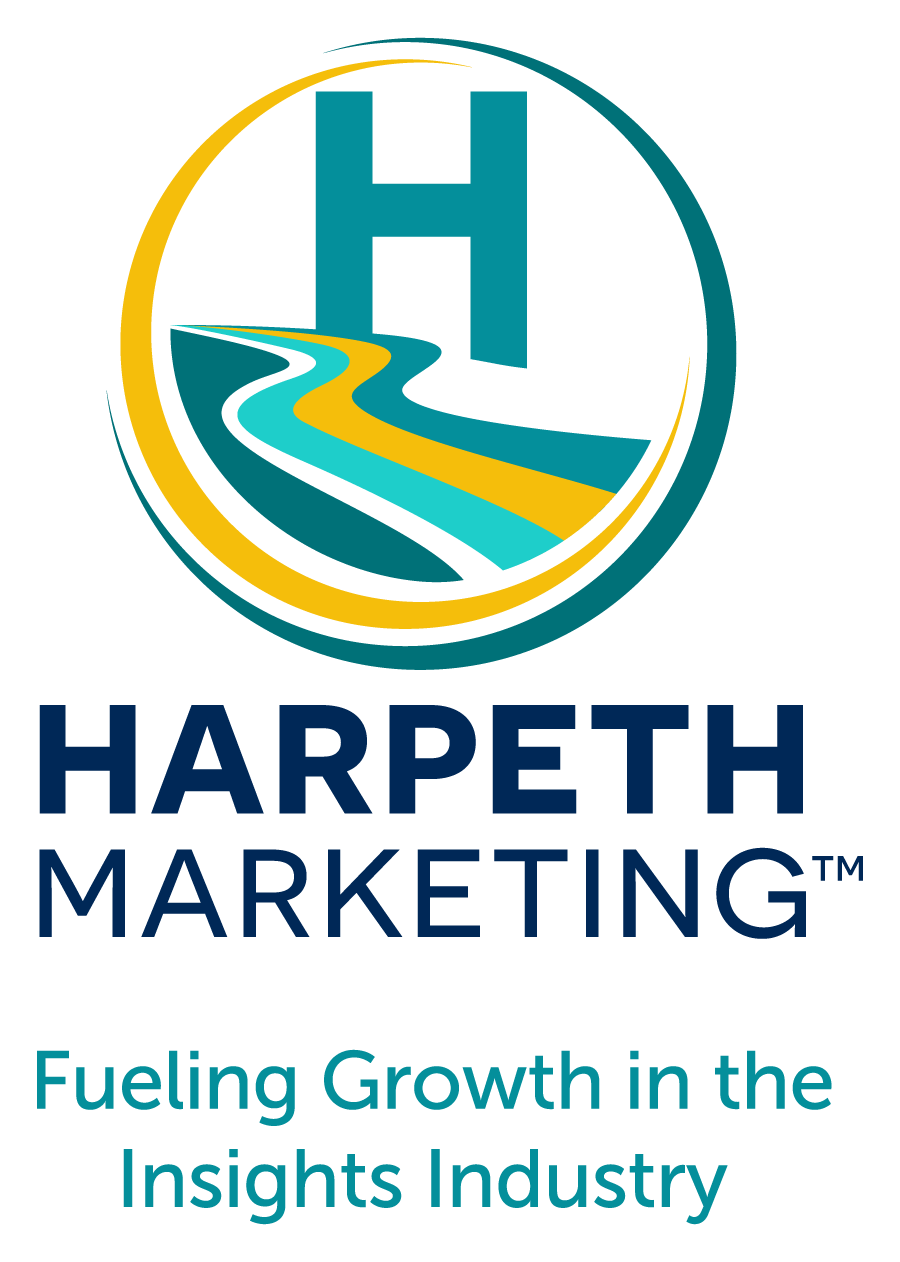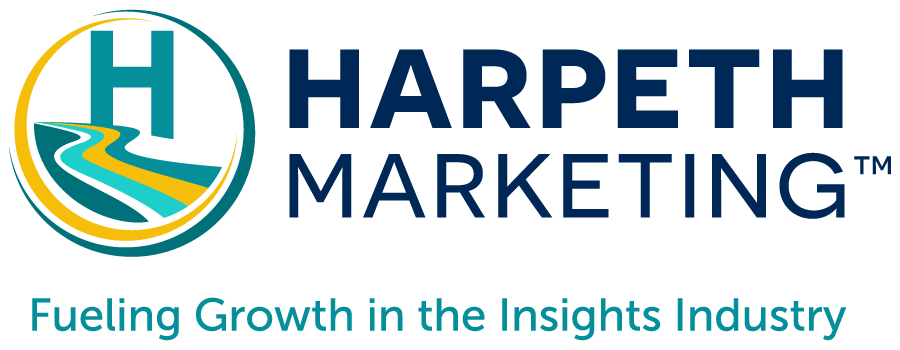 This past November, I had the privilege of hosting and moderating the Insights Association’s webinar series on sales. [A terrific event, by the way!] As part of this program, I had the chance to meet with several research buyers representing a variety of businesses across the US. And a few of them agreed to allow me to interview them for this blog. Here’s a transcript from the first of those interviews…
This past November, I had the privilege of hosting and moderating the Insights Association’s webinar series on sales. [A terrific event, by the way!] As part of this program, I had the chance to meet with several research buyers representing a variety of businesses across the US. And a few of them agreed to allow me to interview them for this blog. Here’s a transcript from the first of those interviews…
Name: Karen Kraft
Title: Associate Director, Consumer Insights & Analytics
Company: Johnsonville
Years at co: 6
Karen, thanks for agreeing to do this. Let’s start with some of the basics… what types of research are you doing at Johnsonville?
“I support Innovation (from fuzzy front end through launch), our MarCom team with positioning and campaign development and tracking, and our Brand Team to support our day-to-day business questions. Basically, everything that doesn’t involve directly testing our products themselves… that’s another department within R&D.”
Thanks… let’s switch to some of the things you might see from research agencies out in the marketplace. Let’s start with Content Marketing and its use by many agencies to build awareness and showcase their thought leadership or expertise. Does content (blogs, eBooks, white papers etc.) help to influence your perception of a firm or your buying decision?
“Yes, it can. It helps me see how people think and come to conclusions, which is a good indicator of how they will come to conclusions in any research we might do together. However, a lot depends on how it is delivered. If I receive it from a company that I’m not currently working with as a link or attachment to an email, there’s no way I’m opening it. However, if it’s featured as a link in an Insights Association daily email, included in a LinkedIn post or shared with me by someone I know and trust, I’ll likely read it if the topic is of interest.”
What about social media? Do you engage with suppliers on Social Media (if yes, which platforms?) And if so, do you use that engagement as part of your evaluation process of potential suppliers? Does it matter if a supplier has a limited or no social presence?
“For work things, I exclusively engage with suppliers on LinkedIn. All of my other social media accounts are personal. If I’m friends with someone that is a supplier in one of those spaces, it’s because we have developed a personal friendship. I don’t consciously use LinkedIn engagement as part of my evaluation process. But referencing my previous answer, if they are posting interesting content it will stick in my mind over time. If a supplier has limited or no social presence, I don’t hold it against them at all.”
How about email marketing? If you are on an Email list from a supplier, what would you want to see in their emails that would keep you wanting to receive those emails (rather than opting out)?
“Tell me the important information within the context of the email. Don’t just give me a tease and then tell me to click on a link or go to a webpage to download a report (where I have to register with all of my information and likely get more emails). I’m not going to risk my entire company’s IT security to read your unsolicited report if I don’t know you. If I don’t want to receive junk from you, I’m not going to take the time to opt out. I’ll just block you within my email system and then you’ll automatically get delivered to my junk folder in the future.”
“If I know you, that’s a different story. Then I’m definitely open to checking out links you send me or downloading a report you’re publishing. Again, it’s all about IT security and knowing it will be worth my time.”
What about vendor websites? Are they important to you in the buying process?
“When I visit the website of a vendor I’m not currently partnering with, I tend to look at several aspects. First, is the overall design and layout modern and is the information up-to-date? A website is a bit of an extension of a company’s graphic capabilities and if it is simple/dated looking, it makes me wonder what their reports might look like.”
“Also, do they have bios of their principals and key account people (especially whoever I might be working with)? While I can find this info on LinkedIn, it’s nice to be able to learn more about the background of the folks I’m going to be working with/instilling my trust in.”
“Next, who are some of their existing clients and do they have any case studies available to read online? Again, this helps instill confidence that they aren’t a fly-by-night company and gives me a sample of what they might be able to do for me.”
“And finally, do they have a blog or any white papers available that can give me a peak into how they think and what their POV is on things.”
Let’s switch to industry events… what are the top 3 conferences/events you (or your colleagues) attend each year?
“My must attends every year are Quirk’s Chicago, the Insights Association Annual Conference and the Insights Association’s Corporate Researchers Conference.”
Regarding the MR agency ‘sales process’… What is the #1 thing a potential supplier can do to get on your “short list” for consideration? What is the #1 thing supplier salespeople must absolutely NOT do?
“Become a member of the Insights Association and be active in the association. I know that members of IA have to hold themselves to a set of standards and almost all of my suppliers are members. It also gives me an opportunity to meet potential new vendors in person at conferences so I can start to evaluate you and build up trust in person. Don’t cold call my cell number. I’m never going to answer if I don’t recognize your number. I’ve even had a supplier mask their number to make it look like a conference I’m speaking at is the one calling. I picked up and then became royally pissed off at the slimy tactic. It feels like a violation of my personal space.”
OK, so how can a provider proactively reach out to you & connect with you in an effort to get to understand your needs and how they might be able to help?
“Have someone I’m currently working with introduce you and recommend that we talk. My current suppliers know a lot about my needs and are very good at admitting when they aren’t the best fit for what I’m looking for or knowing when there’s something new out there that I’d be interested in. When they say, “you need to talk to X about their way to do Y” I always do them the courtesy of connecting with the recommended new supplier. It has led me to learn about some great capabilities that I didn’t know existed and strengthened the relationship with my existing supplier. So as a provider, network and make friends (not enemies) with other suppliers to get yourself into my circle of trust.”
Karen, we’ve all sat through some really bad sales pitches… describe the perfect Capabilities Presentation from a potential supplier?
“This is a hard one. In the immortal words of Supreme Court Justice Potter Stewart, “I know it when I see it.” A lot of it depends on if you’re a generalist or a specialist. If you’re a specialist, I want to know what makes you special. Showing examples of how your unique methodology works and how it impacted a client’s business is always helpful. If you’re a generalist, I want to know you know research and aren’t just a fly-by-night pop-up organization. Show me who you’ve worked with, the experience of the key players in your organization and what I should expect when working with you (who am I going to be dealing with if it isn’t you, and why should I trust them).”
And after the presentation comes the Proposal… describe the perfect Proposal from a potential supplier? All things (services, pricing, timeframe) being equal between potential suppliers bidding on a project, how do you make your decision?
“Assuming this is for a big project that needs a full proposal as opposed to a bid letter… like a report, your proposal should tell a story. I should be able to see that you understand my business issue/problem, see how you’re proposing to answer it, and what the results are going to look like. It’s an opportunity to give me a sneak peek of what your reporting style is. If it’s just bunch of PowerPoint slides that are full of words, I’ll question your storytelling skills and pad in extra time on the back end for me to have to rework your report for my internal stakeholders. I shouldn’t need to have you on the phone to walk me and my non-research colleagues through the proposal. It should speak for itself so we can meet, talk through it openly and feel it represents your solution well.”
“In terms of how I make my decision (again for big projects), existing experience and trust have a lot of influence. The higher profile the project, the more risk is involved on my end. Knowing that it is a sound methodology based on sound data goes a long way. This also often tips the scales in the favor of my current supplier partners, but not always if a new potential supplier can show that they can confidently answer my question better than others.”
In buying research services, do you involve someone from ‘procurement?’ If so, what role do they play?
“No, thank goodness!”
Karen, what is your ‘trigger’ to start looking for new research suppliers? Or are you always looking… just in case?
“If a supplier really messes up, I might start looking for a new supplier for that methodology. But, I’m much more of an ‘always looking’ person. It’s a big reason why I attend conferences. I like to be able to see case studies in sessions co-presented with existing clients so I can think, how would this fit into my world. Very rarely does an interaction at a booth really spark my interest in wanting to try a new supplier. It’s often because I saw you present something and heard your client talk about how it impacted their business that gets you on my radar.”
Finally, is there anything else you think MR agencies salespeople need to know about working with potential buyers?
“Patience is a virtue. Almost always my current-year budget and next year budget are completely spoken for. Don’t expect to pitch me your new service and have me award you a project within the next quarter. Unless I have a very specific need to be filled (which is extremely rare) it’s more likely going to be 18 to 24 months before I find a way to try you out if I’m interested. If you asked several of my existing supplier partners that I met completely cold, they would agree that while it took a long time to get to that first project, it resulted in a great long-term partnership and was well worth the wait.”
Let’s end with this… tell us a fun fact yourself.
“I worked on a cruise ship in Hawaii in my 20’s and I’m writing a book about it.”
Karen, thanks so much for your time and insight into your approach to buying research and working with suppliers. Happy New Year… and I can’t wait to read your book! 😉

